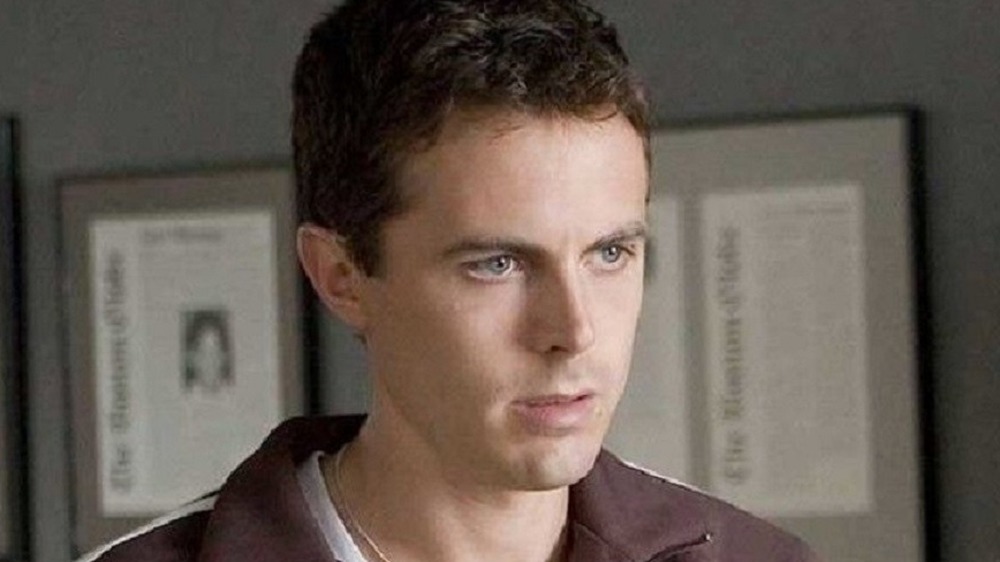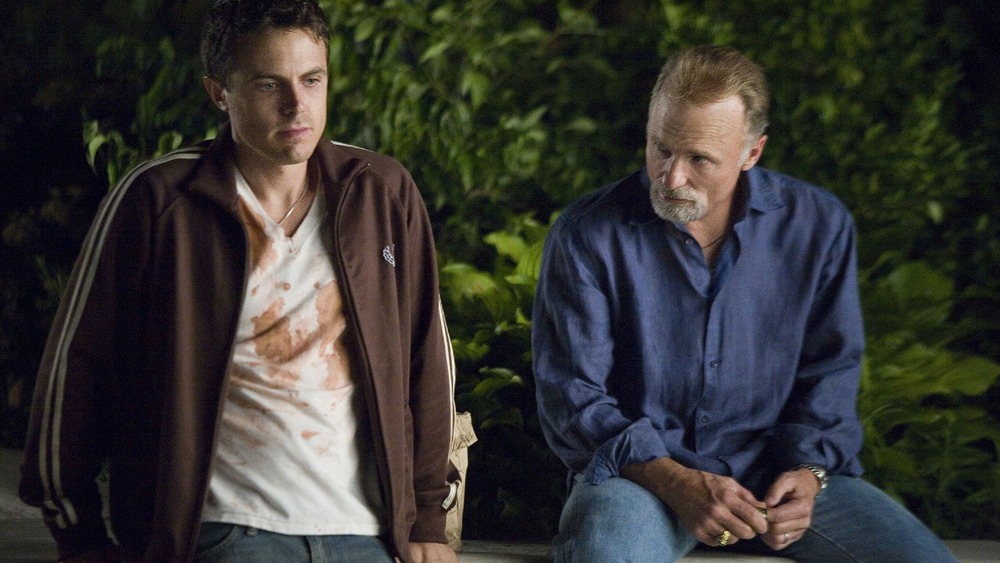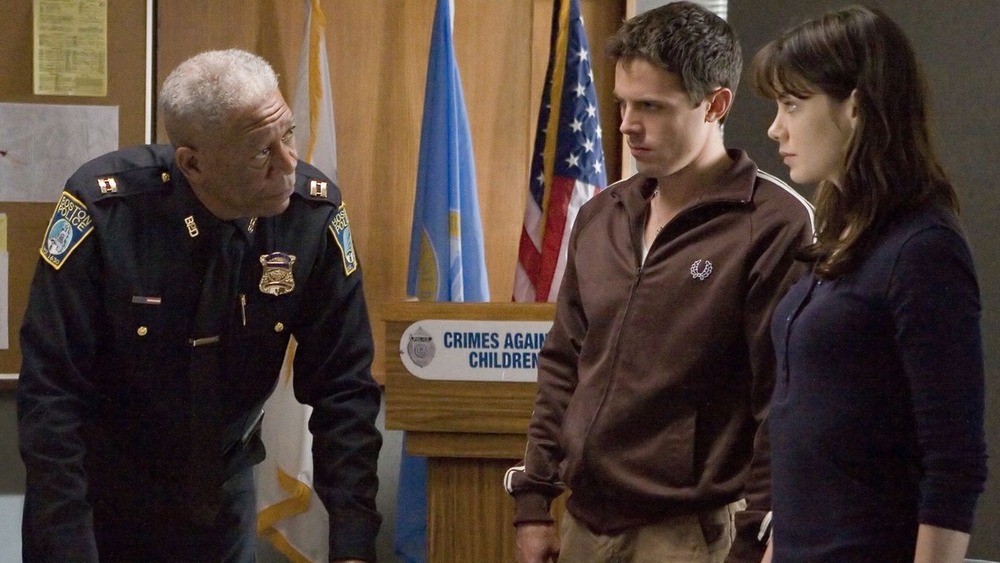The Ending Of Gone Baby Gone Explained
If you ask a random member of the public to name a movie written and/or directed by Ben Affleck, you're probably going to get Good Will Hunting or Argo, or possibly even The Town. But 10 years after Good Will Hunting rescued him from several forgettable roles and helped to establish him as a serious actor and writer, Ben Affleck made his feature directorial debut with the twisty mystery flick, Gone Baby Gone. Despite great reviews and even a Best Supporting Actress Oscar nomination for Amy Ryan (aka Holly from The Office), Gone Baby Gone became one of those critically acclaimed films that failed to see great traction at movie theaters.
Affleck also co-wrote the screenplay, which was based on a novel from Dennis Lehane. Set in Boston (of course), the movie starred his brother Casey Affleck as private investigator Patrick Kenzie, who is hired by the aunt and uncle of a missing four-year-old named Amanda (Madeline O'Brien). Patrick and his work partner, Angie (Michelle Monaghan, who you may know from a certain underrated Robert Downey Jr. movie), initially believe that a drug dealer has kidnapped Amanda to get revenge against her mother Helene (Ryan), who worked as his drug mule and stole money from him. However, after a planned exchange between the dealer and the police goes wrong, Patrick slowly realizes that details about the case don't add up — and the cops know more than they're letting on.
Gone Baby Gone explores what is right vs. what is just
In the final minutes of Gone Baby Gone, Patrick visits police captain Jack Doyle (Morgan Freeman), having figured out that the police department conspired to take Amanda from her neglectful mother Helene, and give her a stable and loving home with Doyle and his wife. Sure enough, a very much alive Amanda runs out the front door and happily hugs Doyle.
The confrontation between Doyle and Patrick sums up a central conflict explored in Gone Baby Gone: is it ever right to do something that is illegal and widely deemed to be immoral (e.g. kidnapping a child) because you believe that it will lead to a happier outcome than anything the official justice system will deliver?
In this scene, Doyle argues that if Amanda stays with Helene, she'll probably go down the same dismal path as her mother. He arranged the kidnapping, he says, "for the sake of the child." Patrick argues that Helene is Amanda's mother and therefore has the right to raise her. He says that even if Doyle could give Amanda more emotional support and material possessions, at some point she will learn the truth and feel cheated out of knowing her biological family.
However, Patrick hasn't always been so clear about extrajudicial decisions. After once discovering the body of a child at a pedophile's house, he executed the pedophile on the spot. When another cop, Remy (Ed Harris), tells him that he did the right thing, and admits to planting evidence on a different man so his child would be taken away, Patrick disagrees. He says he wouldn't commit the murder again, if given a second chance. Remy says, "Doesn't make it wrong, though, does it?" Patrick doesn't respond.
Gone Baby Gone is secretly a rogue cop story
In Gone Baby Gone, an interesting layer in the debate between extrajudicial actions versus obeying legal processes is the fact that the people doing the former are police officers. As a private investigator, Patrick is arguably in a better position to operate in grey areas, because he does so as a private citizen, not as a representative of the criminal justice system. But when the chips are down, he's the one who believes in following the law — at least in theory.
True stories about police committing acts of vigilante justice typically revolve around corruption and horrific brutality. But the Hollywoodized version of the rogue police officer usually portrays the character as someone willing to bend the rules because that's what it takes to catch "the bad guys." These movies don't often stop to interrogate what "bad guys" actually means.
The ending of Gone Baby Gone fits this trope. The movie's big twist revolves around fooling us into thinking that Remy's involvement in the kidnap is about money, only to reveal that the whole police department was acting in what it believed was Amanda's best interest. The movie leans on the ultimate bad guy — adults who hurt children — to push us to ditch any lingering conflict we have about such pesky things as due process. By the final scene, even Patrick is doubting his decision after he finds Helene leaving her daughter unsupervised to go on a night out.
Gone Baby Gone is slicker than your average cop action thriller, and it likes to play up its debates around morality. But in the end, it's a drama about police framing and even murdering civilians in the name of achieving their own brand of justice.
Gone Baby Gone is available to stream on Paramount+.


